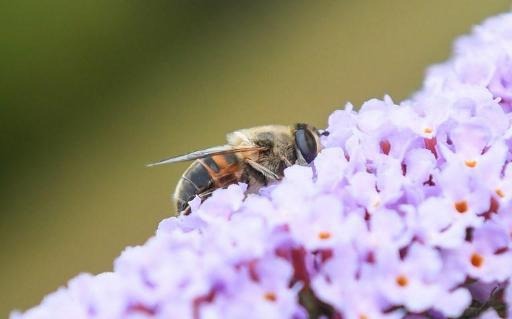The decline in the bee population is a "serious threat" to plants, the UN Food and Agriculture Organization (FAO) warned on Monday, asking countries "to do more" to "protect these indispensable allies in the fight against hunger and malnutrition." "Bees are greatly threatened by the combined effects of climate change, intensive farming, the use of pesticides, loss of biodiversity and pollution," M. José Graziano da Silva, the Director General of the FAO, said on Monday in a press release issued as part of World Bee Day. According to him, "the absence of bees and other pollinators" that are involved along with pollination in the fertilisation and therefore the reproduction of plants, "could lead to the destruction of coffee, apple, almond, tomato and cocoa" cultivation in particular.
If the pattern of decline in pollinating insects like bees continued, "fruits, nuts and other produce" could be replaced "by food crops like rice, maize and potatoes" that are less linked to pollinisation, "thereby fostering unhealthy diets," the FAO emphasised. Graziano da Silva called on member countries "to move towards food policies and sustainable systems that supported pollinators." "The very act of growing flowers at home plays a part in this effort by feeding the bees," he explained.
World Bee Day, held for the second time, was launched on the initiative of Slovenia, a small European country where bee-keeping is an important farming activity, and the International Federation of Beekeepers' Associations in a 2017 UNO general assembly resolution. The date was chosen in view of the date of birth of Anton Jansa, a pioneer of modern bee-keeping born on May 20 1734 into a family of Slovenian bee-keepers and the author in 1771 of a book entitled "A Discussion on Bee-keeping."
The Brussels Times
Declining bee population threatens world food security, says FAO

